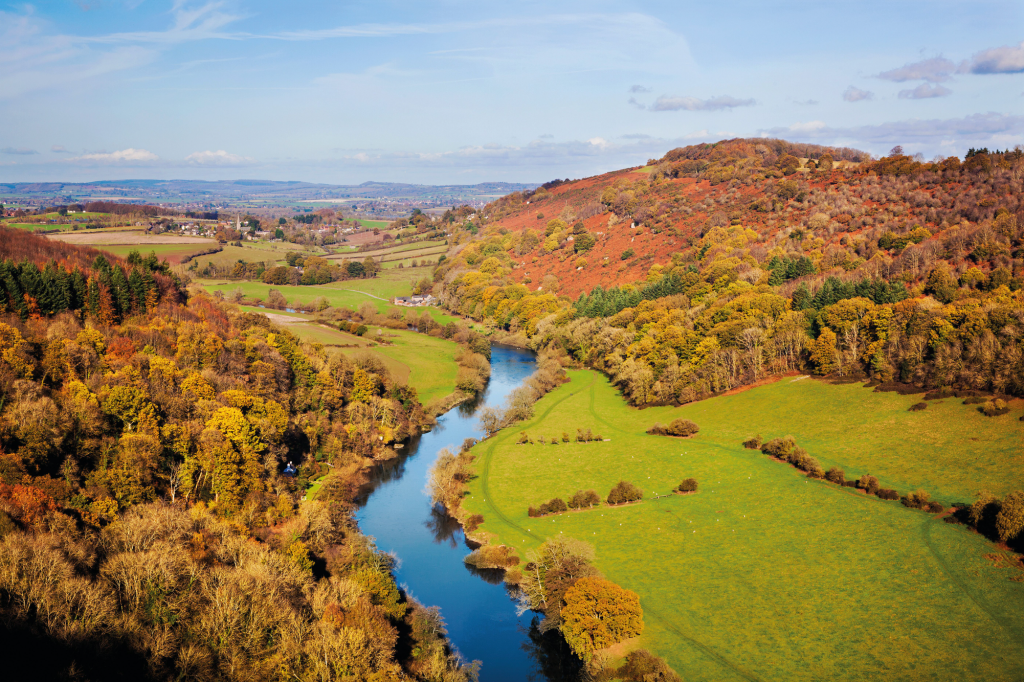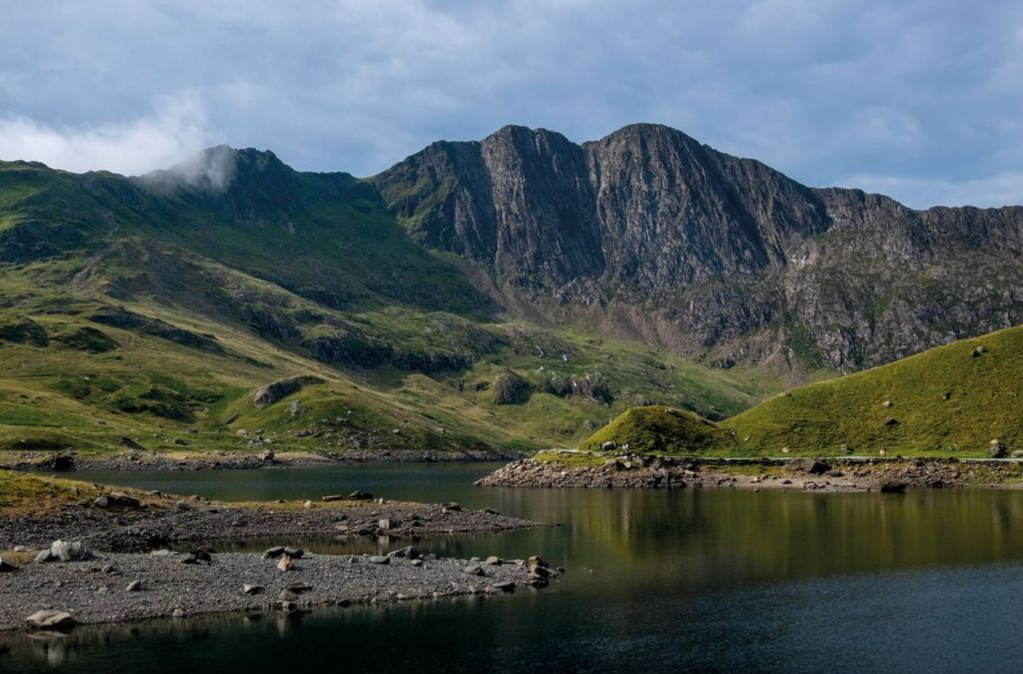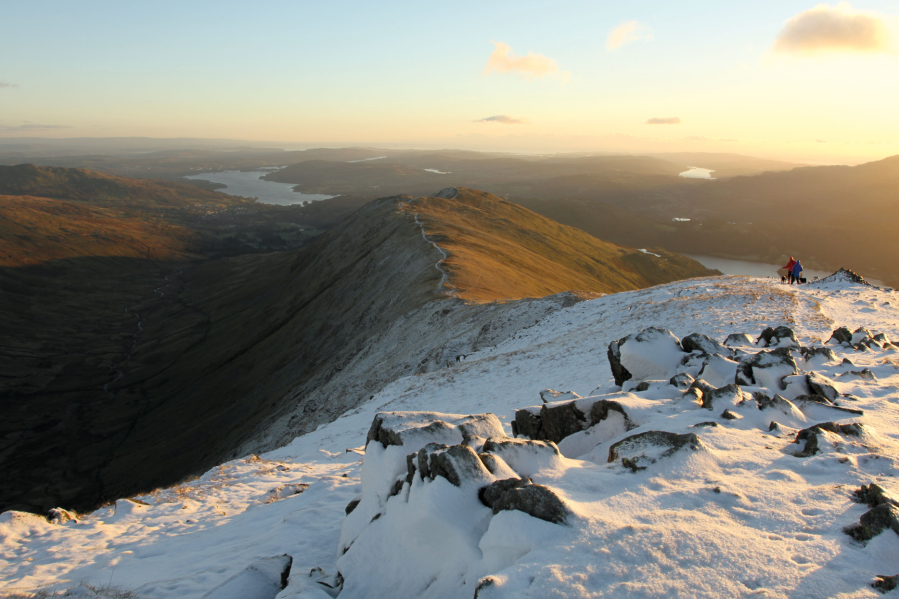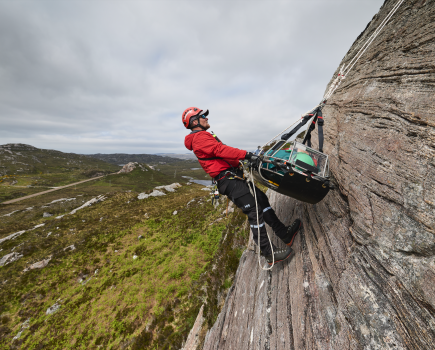As ‘bloated’ and non-representative England National Parks Authorities are revealed to be ill-equipped to cope with funding cuts and the climate crisis, we need a reconnection to the radical roots set down 75 years ago when our parks were founded.
The public demanding greater protection for nature and freedom to roam the countryside. A new Labour government, pledging to rebuild the country after years of adversity. I’m not talking about 2024 – I’m talking 75 years ago and the founding of our National Parks.
Main image: Windermere, a polluted body of water in Lakeland, from the Fairfield Horseshoe | Credit: Shutterstock
The National Parks and Access to the Countryside Act was passed in 1949. It was radical and left a huge legacy including the foundations of nature conservation and access to the outdoors we have today. The vision was a simple one: National Parks as places where every citizen, no matter their class, race or age, could immerse themselves in the wonders of nature.
That vision still stands and resonates with so many of us today. And yet, we still have a long way to go to make that vision a reality. Nature is in free fall in our National Parks. Campaign for National Parks’ Health Check found that only 6% is properly protected and every river and lake is polluted and so many people from across our nation are excluded from these most special landscapes.
Despite the amazing efforts of many communities and grassroots groups (from Muslim Hikers and Dadimas CIC to Girls Do Dartmoor and Generation Green), the average National Park visitor is still most likely to be older, affluent, able-bodied and white.
National Park Authorities are the government bodies charges with protecting and managing the UK’s 15 National Parks, ensuring these are landscapes for everyone. They have a huge job to do in the face of the climate and nature crisis and the rise of poor mental and physical health. That job has been made the more difficult by funding cuts. But it’s frankly impossible without a major change in how these bodies are governed.
A recent investigation by the Guardian found that England’s National Park Authorities are ill-equipped to lead the changes needed, overseen as they are by ‘bloated’, mostly white boards. It found that of the 225 Board Members that run the 10 English Parks, 70% are men and less than 2% are people of colour. Farmers outnumber conservationists two to one, and nature is rarely on agenda at Board meetings.

England’s rivers such as the Wye have become part of our sewage network. Credit: Shutterstock
Reform of the way Park Authorities are run is long overdue. Six years ago, the Independent Landscapes Review led by Julian Glover concluded that the National Park Boards were “shockingly” lacking in diversity and lacking in people with the experience needed to secure nature and connect people with these special places. The Review’s recommendations to address this were subsequently ignored by the Conservative Government.
If this new Government is serious about improving access to the countryside and making National Parks wilder, it must set out changes starting right at the top of the National Parks.
Landscapes for everyone is more than just ensuring everyone can get outside. It must also be about representation and participation in decision making. Who better to oversee plans to tackle rural racism and outreach to marginalised communities than those who have lived it? Who better to oversee plans to scale up nature recovery than those with expertise? Who better to think about the legacy we leave for future generations than young people? Diversity in the leadership of National Park Authorities is absolutely fundamental to ensuring they can fulfil their purposes: conserving and enhancing wildlife, natural beauty and cultural heritage, whilst enabling the public enjoyment.

Yr Wyddfa from the Miners’ Track in Eryri/Snowdonia National Park. Credit: Shutterstock
There’s real opportunity right now to modernise and streamline National Park Boards as part of Government plans for the planning and devolution (and legislation announced in the Kings Speech). We need a change in law, removing the strict requirements that dictate large numbers of local government and parish councillors and appointments by the Defra Secretary of State. Instead, we need smaller Boards with appointments made on merit, on the basis of relevant skills, expertise and lived experiences.
But there’s also scope for quick wins that can start to bring change right now. National Park Authorities could “co-opt” people to bring diverse perspectives and advice into their boardrooms (as the South Downs National Park Authority has done). They could speak out to champion and advocate for change and collaborate to build a culture of inclusion.
There’s something you could do, too: apply to become a Defra-appointed Board member. Our National Parks need people from across the nation to be part of decision making, readers of The Great Outdoors included. It’s time we reconnected with the radical roots set down over 75 years ago, and put in place the reforms we need to put the ‘national’ back in National Parks, and leave a legacy for future generations.
This opinion piece on the England National Parks Authorities was originally published in the December 2024 issue of The Great Outdoors.








